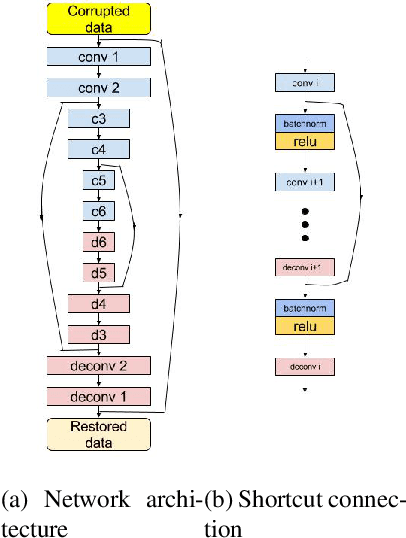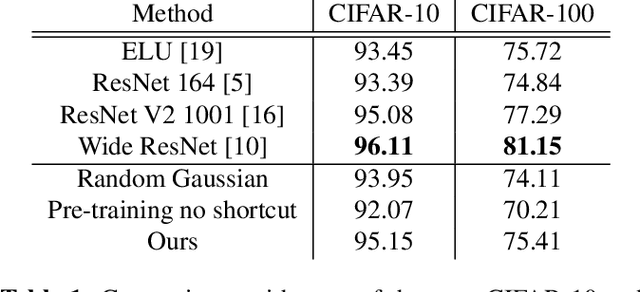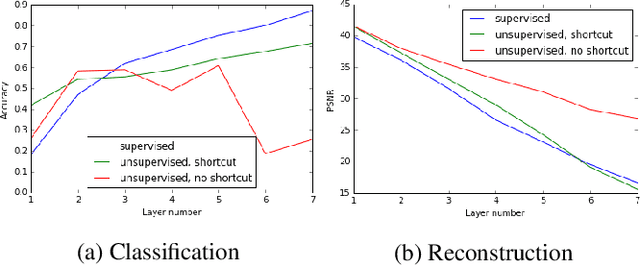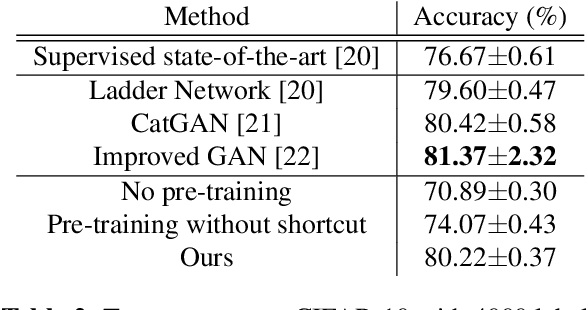Learning Deep Representations Using Convolutional Auto-encoders with Symmetric Skip Connections
Paper and Code
Mar 28, 2017



Unsupervised pre-training was a critical technique for training deep neural networks years ago. With sufficient labeled data and modern training techniques, it is possible to train very deep neural networks from scratch in a purely supervised manner nowadays. However, unlabeled data is easier to obtain and usually of very large scale. How to make use of them better to help supervised learning is still a well-valued topic. In this paper, we investigate convolutional denoising auto-encoders to show that unsupervised pre-training can still improve the performance of high-level image related tasks such as image classification and semantic segmentation. The architecture we use is a convolutional auto-encoder network with symmetric shortcut connections. We empirically show that symmetric shortcut connections are very important for learning abstract representations via image reconstruction. When no extra unlabeled data are available, unsupervised pre-training with our network can regularize the supervised training and therefore lead to better generalization performance. With the help of unsupervised pre-training, our method achieves very competitive results in image classification using very simple all-convolution networks. When labeled data are limited but extra unlabeled data are available, our method achieves good results in several semi-supervised learning tasks.
 Add to Chrome
Add to Chrome Add to Firefox
Add to Firefox Add to Edge
Add to Edge